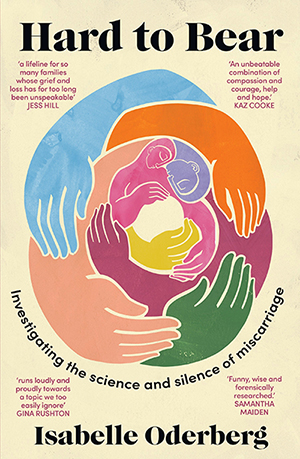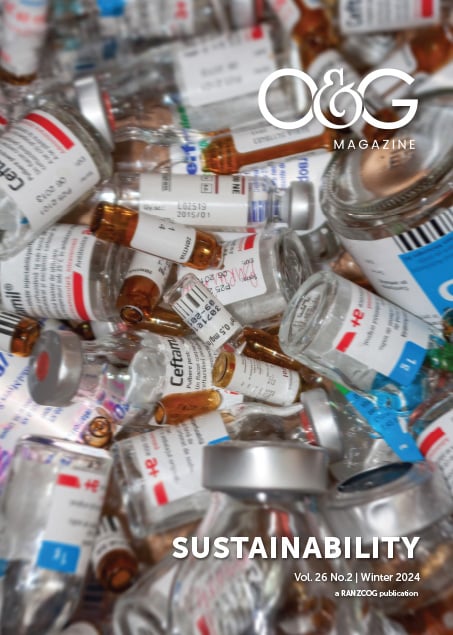
Hard to Bear written by Isabelle Oderberg was published by Ultimo Press in 2023.
Hard to Bear is a book about miscarriage. It’s written for anyone who may be affected by miscarriage – women at any stage of their pregnancy journey, family and friends, doctors and midwives, administrators and policy makers and educators. And it covers miscarriage from just about every imaginable angle. Very few authors could have pulled it off as well as Oderberg has. As an experienced journalist (her work has appeared in The Age, Sydney Morning Herald, The Guardian, ABC and Meanjin), she is an accomplished interviewer, researcher, and storyteller. She has also experienced seven early pregnancy losses, and her own story, told with humour and emotional honesty, is woven through the book. It is an understatement to say that she is passionate about her subject.
A major theme of the book is the many ways in which society is failing women who have miscarriages. Oderberg writes about the silence that surrounds miscarriage, the lack of education and support, differences in care between the public and private systems, poor or non-existent data collection, and the relative paucity of scientific research. She also explores ethical and sociological aspects, including concepts of personhood, the commercialisation of pregnancy, and how feminism has struggled to reconcile the fight for abortion rights with support for women who experience pregnancy loss.
A notable feature of the book is the care that Oderberg has taken to include multiple perspectives. There is a chapter on how miscarriages are experienced by partners, family, friends and co-workers, and another that advises how best to support a mother through miscarriage. She discusses (and normalises) the wide spectrum of reactions women can have to pregnancy loss, from relief to intensely grieving a biochemical pregnancy. Importantly, she also includes the perspectives of people whose backgrounds or identities pose additional challenges, such as people who are gender diverse, live with disabilities, or are from different cultures. A chapter on the specific challenges experienced by Aboriginal and Torres Strait Islander people is co-written with Cherisse Buzzacott, an Arrernte midwife and mother. Oderberg interviewed many people for the book, and her compassion and curiosity shine through her storytelling.
Reviewing causes of miscarriage and options for treatment, Oderberg does an excellent job of translating technical terms and concepts into language accessible to the general reader. She has interviewed some of the foremost experts in the field, in Australia and internationally, and presents their interpretations of the evidence and recommendations. The chapter on environmental causes of miscarriage is meticulously researched and utterly frightening.
Oderberg is sympathetic to the pressures under which frontline caregivers work, but she does not hold back from critique of systemic issues and the many casual and unexamined assumptions that healthcare-workers hold. I recognised some of my own with discomfort, but it is a rare privilege to have a mirror shone back on you by such an empathic and articulate writer. Hard to Bear empowers, educates, and entertains, and offers countless valuable insights that will help us provide better care. I recommend it to anyone whose life is touched by miscarriage—which, as Oderberg points out, is nearly everyone.





[…] and midwives who work across the state’s early pregnancy loss clinics) and an extremely moving review in O&G Magazine, produced by the Royal Australian New Zealand College of Obstetricians and […]